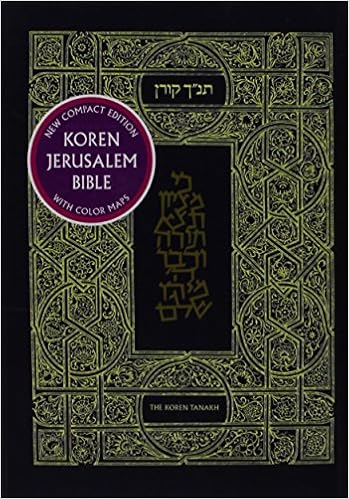I was studying today, Shabbat Parshat Zachor and I realized that the system that we usually use to talk about the Tanach (The Bible ) is really a system that was devised by Christians so that they could use the Bible for their own puposes. The Jewish Bible was divided into 154 sections called Sedras סדרות that corrrespond to the the divisions in use in Israel in antiquity. This was because the Torah was read over 3 years. Each Sedra was longer than the Chapters, and always start on a good note and end on a good note.
The verses that we know usually correspond to the Trope, and a sof pasuk ends each verse. This was finalized only in the year 1440 by Rabbi Natan ben Kalonymus.
I feel that this division of the Bible into the Sedras is more Jewish and I will try to use this system to study the Bible. Most modern Bibles don't have this markings, but the Koren Jerusalem Bible has them as well as the Bible with commentary by Rabbi Adin Steinshaltz
https://www.mechon-mamre.org/i/t/t0101.htm
This link goes to the Hebrew Bible on-line.
We are now working on Verse 5
I translate it: And the Lord called the light day and the darkness he called night, and there was evening, and there was morning, one day.
This is the first place in the Bible, that we have the word ויקרא And he called. There is a midrash that says that the world was created by 10 "utterances" This could be be one of them. In Pasuk ג )3) we had the word ויאמר - and he said, so we will count these "utterances."
What is in a name? Light called Day. When there is light, we see the sun, But the sun and the stars haven't been created yet. This must be a different kind of light. We don't know. what this light actually was, but the Midrash says that this light was shining for 4 days, and then was put away for the end of times. So it was a spiritual light.
Darkness. This is the absence of light. The Lord calls it night. It also had to be a spiritual type of darkness. as the absence of spiritual light shows us.
Then we have the first evening, a blending of light going toward darkness, and when the morning comes again, we have a day.
This is one of the reasons that the Jewish date starts at evening, and all our Jewish holidays start in the evening.
Thanks for reading, if you have any comments, please write below.
Rachael Alice Orbach Here is one of my latest musical compositions for you to enjoy:
The verses that we know usually correspond to the Trope, and a sof pasuk ends each verse. This was finalized only in the year 1440 by Rabbi Natan ben Kalonymus.
I feel that this division of the Bible into the Sedras is more Jewish and I will try to use this system to study the Bible. Most modern Bibles don't have this markings, but the Koren Jerusalem Bible has them as well as the Bible with commentary by Rabbi Adin Steinshaltz
https://www.mechon-mamre.org/i/t/t0101.htm
This link goes to the Hebrew Bible on-line.
We are now working on Verse 5
I translate it: And the Lord called the light day and the darkness he called night, and there was evening, and there was morning, one day.
This is the first place in the Bible, that we have the word ויקרא And he called. There is a midrash that says that the world was created by 10 "utterances" This could be be one of them. In Pasuk ג )3) we had the word ויאמר - and he said, so we will count these "utterances."
What is in a name? Light called Day. When there is light, we see the sun, But the sun and the stars haven't been created yet. This must be a different kind of light. We don't know. what this light actually was, but the Midrash says that this light was shining for 4 days, and then was put away for the end of times. So it was a spiritual light.
Darkness. This is the absence of light. The Lord calls it night. It also had to be a spiritual type of darkness. as the absence of spiritual light shows us.
Then we have the first evening, a blending of light going toward darkness, and when the morning comes again, we have a day.
This is one of the reasons that the Jewish date starts at evening, and all our Jewish holidays start in the evening.
Thanks for reading, if you have any comments, please write below.
Rachael Alice Orbach Here is one of my latest musical compositions for you to enjoy:





No comments:
Post a Comment